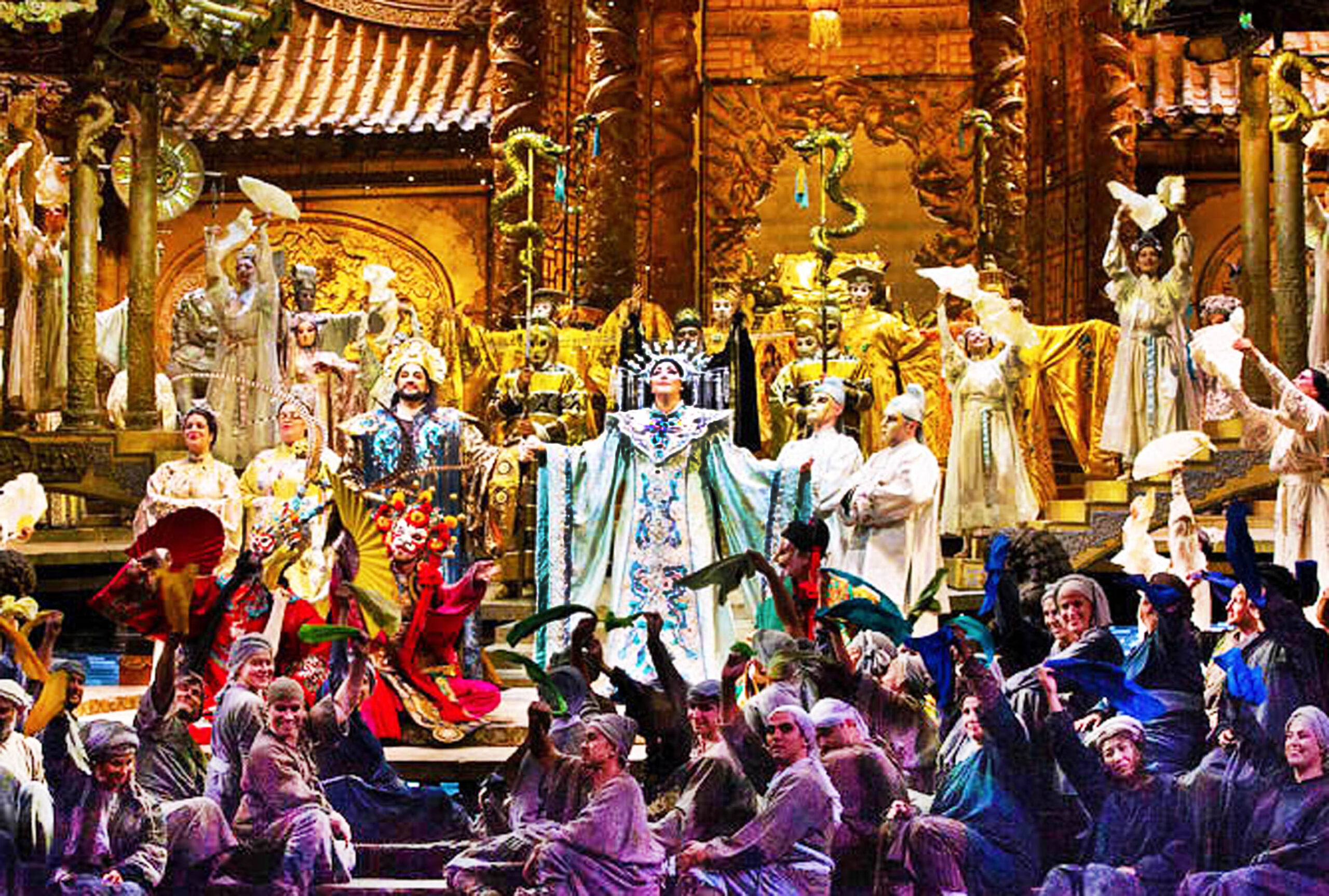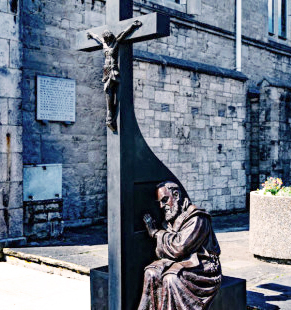This winter is an excellent time for Puccini fans to attend the Metropolitan Opera. Franco Zeffirelli’s spectacular production of “Turandot” is being revived and remains exciting. The Met’s new music director, Yannick Nezet-Seguin, is conducting this revival and makes the score very exciting. He emphasizes the rhythms and Chinese instruments in the music, which makes it all the more intense.
Christine Goerke sings the title role and her voice remains big enough to fill the house, though her highest notes are fluttery, rather than accurate. Riccardo Massi, a new tenor from Turin, Italy, was certainly exciting as Calaf, a role suited for a dramatic tenor with a large voice. His voice easily filled the Met and he sang the part very well.
Another new singer from Italy, Eleanora Burratto, sang Liu and received a loud ovation at the end. Her lovely and lyric soprano voice succeeded in this role, especially notable during her engaging death scene. James Morris, a wonderful Wotan in Wagner’s Ring cycle, cannot sing this lengthy role any longer, but as Timur in this opera, he was very moving. The role is a short one, which he can still sing quite well. Ping, Pang and Pong were engagingly performed by Alexey Lavrov, Tony Stevenson and Eduardo Valdes. Carlo Bosi’s Emperor Altoum remained consistently forceful and always audible.
The Met also revived Anthony Minghella’s spectacular production of Puccini’s “Madama Butterfly” this season and staged the opera in the style of Japanese theater. I had wanted to hear the new young Italian tenor Andrea Carè, who was scheduled to sing Pinkerton, but he unfortunately had taken ill and had to cancel. His cover, the American tenor Bruce Sledge, sounded very good in the role, though he had only two days’ notice to sing the part, so his acting was not terribly engaging.
A new young conductor from Italy, Pier Giorgio Morandi, impressed the audience and got a rousing ovation at the end. He did a wonderful job with this score, making the orchestra always intense, but quiet – emphasizing the intimacy of this score.
The Chinese soprano Hui He also impressed in the title role. She sang the part very well at the Met a few years ago and still sang the role very well, but her acting has greatly improved. She was convincing as a fifteen-year-old girl in first act and then as an 18-year-old in the tragic last acts.
Elizabeth DeShong sounded wonderful as Suzuki, a moving and motherly presence as Cio-Cio-San’s maid and emotional support. Paulo Szot’s Consul Sharpless also succeeded as the diplomat who tries to warn the military man, Pinkerton, that his new wife is only fifteen years old and takes the marriage very seriously. The Japanese Bonze, well-performed by Raymond Aceto, remained a forceful presence as the defender of the Japanese religion.
Certainly, the main target in the opera remains American imperialism in the Far East. Fans of opera will note that the Broadway musical “Miss Saigon” uses Puccini’s plot, but the musical is set amid the Vietnam War. Steven Sondheim’s musical “Pacific Overtures” also creates some great musical theater with this same imperialism topic. In the meantime, Puccini’s operas are being well-performed in spectacular productions at the Met this winter, while Italy is still producing wonderful new conductors and singers for his immortal operas.





